2016 top news stories
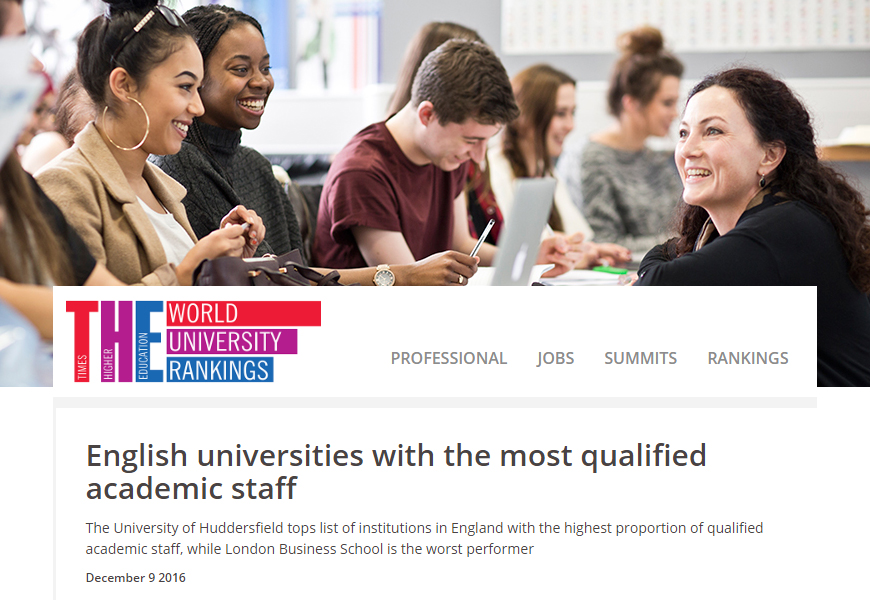
Wed, 21 Dec 2016 17:07:00 GMT
Huddersfield top university for best-qualified staff in the sector and wins Queen’s Anniversary Prize
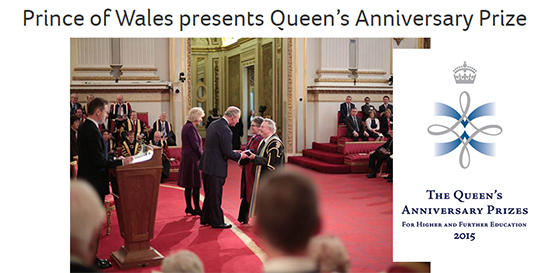 IN its 175th anniversary year, the University of Huddersfield celebrated the past but also looked to the future with the development of major new research centres and the forging of important international collaborations.
IN its 175th anniversary year, the University of Huddersfield celebrated the past but also looked to the future with the development of major new research centres and the forging of important international collaborations.
The year 2016 also saw the University cement its reputation for teaching excellence, when statistics from the Higher Education Funding Council for England showed that Huddersfield was top of all the universities in England for the best-qualified staff in the sector.
It was also a year in which the University retained its position at the country’s leading institution for the numbers of staff appointed National Teaching Fellows. Other plaudits included an analysis that Huddersfield was England’s best provider of undergraduate teacher training.
Results from the 2016 National Student Survey gave the University the third highest score in the country for providing assessment and feedback to students. And an important milestone was reached when the University was awarded its 100th Knowledge Transfer Partnership.
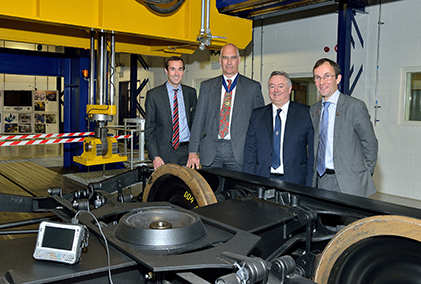 These are among the key indicators in a year that began with the award of a coveted Queen’s Anniversary Prize, bestowed at a Buckingham Palace Ceremony for the University’s work in promoting, producing and presenting contemporary music to an international audience.
These are among the key indicators in a year that began with the award of a coveted Queen’s Anniversary Prize, bestowed at a Buckingham Palace Ceremony for the University’s work in promoting, producing and presenting contemporary music to an international audience.
It was announced that scientists at the University’s Huddersfield’s Centre for Precision Technology and International Institute for Accelerator Applications are to develop vital new technology for the world’s most famous research facility – the Large Hadron Collider, based at the Swiss headquarters of CERN.
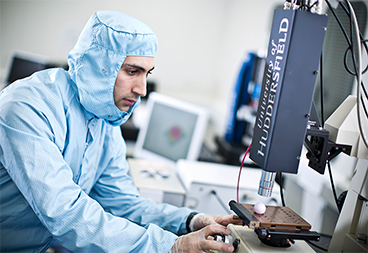 A highlight of the year came when leading figures in the UK railway industry came to the University to celebrate the completion of the Institute of Railway Research’s multi-million pound test rig (pictured left)– the only one of its type in Europe – and the inauguration of a new group, the Centre for Innovation in Rail, that will help to fast track innovations in railway technology.
A highlight of the year came when leading figures in the UK railway industry came to the University to celebrate the completion of the Institute of Railway Research’s multi-million pound test rig (pictured left)– the only one of its type in Europe – and the inauguration of a new group, the Centre for Innovation in Rail, that will help to fast track innovations in railway technology.
Towards the close of the year it was officially announced that the University of Huddersfield is to lead a new £30 million research centre to help transform UK manufacturing. A Future Metrology Hub will be based in the University’s Centre for Precision Technologies, home to a team of world-renowned researchers in precision engineering and metrology. It will address major, long-term challenges facing UK manufacturing industries.
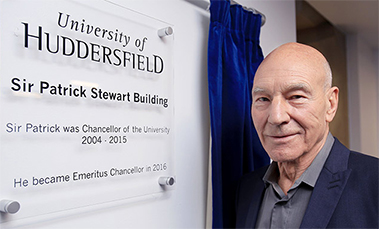 A thread throughout the year was commemoration of the 175th anniversary of the founding of the educational institution from which the University is directly descended.
A thread throughout the year was commemoration of the 175th anniversary of the founding of the educational institution from which the University is directly descended.
There were historical lectures and other events to mark the anniversary and key buildings at the University were renamed after prominent local and regional personages. Most of them were historical figures – such as the Brontë sisters and the scientist Joseph Priestley – but an exception was made in the case of the drama building, named after the famous actor Sir Patrick Stewart (pictured left), Chancellor Emeritus of the University, who attended the renaming ceremony.
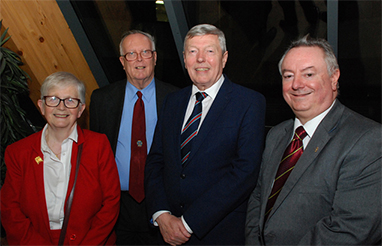 The University’s 175th anniversary celebrations coincided, in March, with the centenary of the birth of Harold Wilson, the Huddersfield man who went on to be Prime Minister. The University played a central role in events to mark the centenary, which included a history tour that took his Harold Wilson’s son and grandchildren to some of the childhood haunts of the famous former Prime Minister, including the terraced house in which Harold was born on 11 March, 1916.
The University’s 175th anniversary celebrations coincided, in March, with the centenary of the birth of Harold Wilson, the Huddersfield man who went on to be Prime Minister. The University played a central role in events to mark the centenary, which included a history tour that took his Harold Wilson’s son and grandchildren to some of the childhood haunts of the famous former Prime Minister, including the terraced house in which Harold was born on 11 March, 1916.
The Centenary Day – attended by Harold’s son, Professor Robin Wilson (pictured second left) – closed with the 2016 edition of the annual Harold Wilson Lecture, given by the leading contemporary Labour politician Alan Johnson MP (pictured second right), a former Home Secretary who is also a critically-acclaimed author.
The year’s two weeks of awards ceremonies saw honorary degrees conferred on a wide range of distinguished men and women. They included the Holocaust survivor Iby Knill, whose award was fitting in a year that it was announced the University would will house the Holocaust Heritage and Learning Centre for the North of England, to be created in funding of £1 million.







